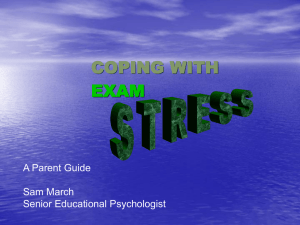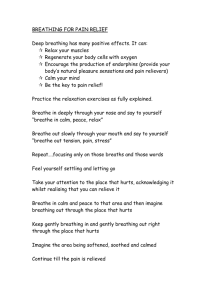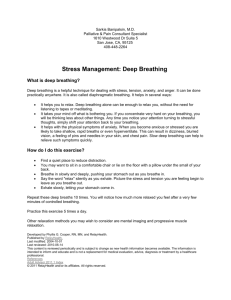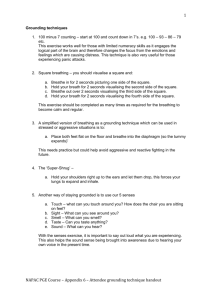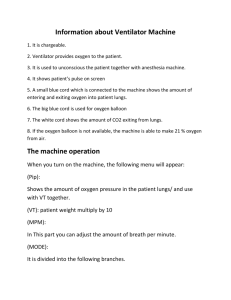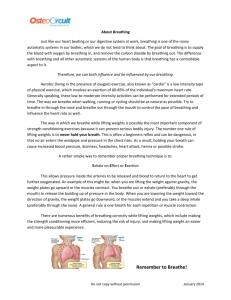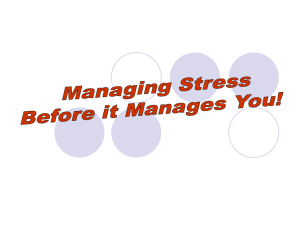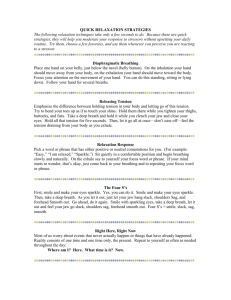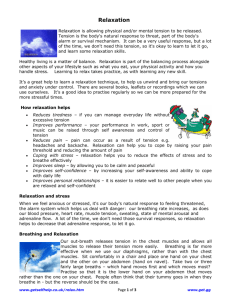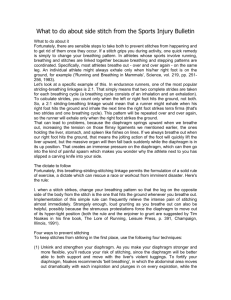Relaxation Breathing (Word)
advertisement
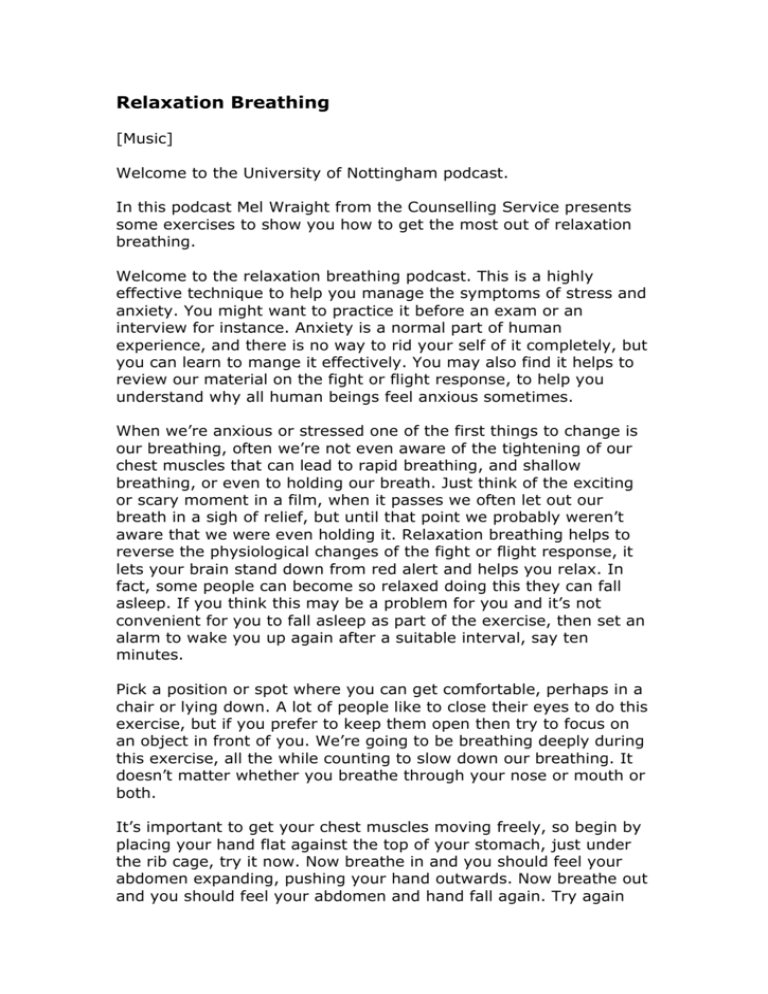
Relaxation Breathing [Music] Welcome to the University of Nottingham podcast. In this podcast Mel Wraight from the Counselling Service presents some exercises to show you how to get the most out of relaxation breathing. Welcome to the relaxation breathing podcast. This is a highly effective technique to help you manage the symptoms of stress and anxiety. You might want to practice it before an exam or an interview for instance. Anxiety is a normal part of human experience, and there is no way to rid your self of it completely, but you can learn to mange it effectively. You may also find it helps to review our material on the fight or flight response, to help you understand why all human beings feel anxious sometimes. When we’re anxious or stressed one of the first things to change is our breathing, often we’re not even aware of the tightening of our chest muscles that can lead to rapid breathing, and shallow breathing, or even to holding our breath. Just think of the exciting or scary moment in a film, when it passes we often let out our breath in a sigh of relief, but until that point we probably weren’t aware that we were even holding it. Relaxation breathing helps to reverse the physiological changes of the fight or flight response, it lets your brain stand down from red alert and helps you relax. In fact, some people can become so relaxed doing this they can fall asleep. If you think this may be a problem for you and it’s not convenient for you to fall asleep as part of the exercise, then set an alarm to wake you up again after a suitable interval, say ten minutes. Pick a position or spot where you can get comfortable, perhaps in a chair or lying down. A lot of people like to close their eyes to do this exercise, but if you prefer to keep them open then try to focus on an object in front of you. We’re going to be breathing deeply during this exercise, all the while counting to slow down our breathing. It doesn’t matter whether you breathe through your nose or mouth or both. It’s important to get your chest muscles moving freely, so begin by placing your hand flat against the top of your stomach, just under the rib cage, try it now. Now breathe in and you should feel your abdomen expanding, pushing your hand outwards. Now breathe out and you should feel your abdomen and hand fall again. Try again and try to get your shoulders moving a little upwards and backwards at the same time, this will open up your chest. So breathe in and open up the chest, breathe out and relax. Okay that’s the action, now for the counting. Counting while you breathe helps to lengthen your breaths and slow things down, it also gives your mind a simple activity to perform, which helps to distract you when your head might be full of anxious thoughts. Remember while you’re doing this exercise all you have to do is count and breathe. We’re going to breathe in for the count of five and out for the count of seven. I’ll count like this: in, two, three, four, five, out, two, three, four, five, six, seven. Just try to fall instep with me and count in your head. Ready? Here we three, four, five, three, four, five, three, four, five, three, four, five, go then. Breathe in, two, three, four, five, out, two, six, seven. In, two, three, four, five, out, two, six, seven. In, two, three, four, five, out, two, six, seven. In, two, three, four, five, out, two, six, seven. Try this for a minute or two at a time, it might feel strange at first, and this is because we normally breathe without thinking about it, so when we take conscious control it can feel a bit odd. But if you try this a few times and don’t find it relaxing, don’t worry it may just not suit you, there are other ways to relax. You may also want to try the progressive muscular relaxation exercise. Keep practicing this once a day, or as often as you like, because like any exercise it gets easier and becomes more beneficial with practice.
